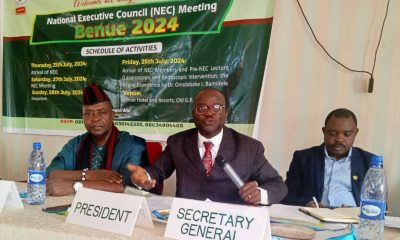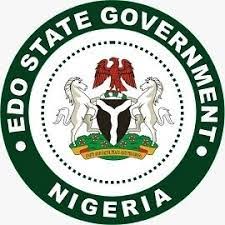Health
Military Health Agency Urges Retirees to Enroll in NHIS
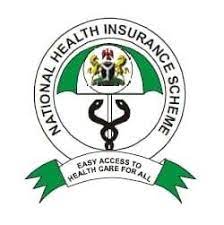
The Managing Director, Military Health Management Limited (MHML), retired Rear.
Adm. Azeez Afolayan has called on retired military personnel to properly enroll in the National Health Insurance Scheme (NHIS).Afolayan made the call at a meeting with military veterans with the theme, “Strengthening Health Insurance Cover for the Military Veterans” on Thursday in Abuja.
He said the welfare and comfort of military veterans was a thing of concern, adding that military veterans were accorded the status of special citizens and respected and treated as such in many advanced counties.
Afolayan, a surgeon, said military veterans generally were unaware of the contents of the benefits package in DHML programme, saying the interactive meeting was intended to bring the veterans closer to the organisation.
He added that the meeting was also convened to enable them to interact with veterans in such a way as to fully benefit from the various provisions made for their health insurance cover with DHML
According to him, the health insurance benefits package for the retired personnel is the same as that for the serving personnel.
“The idea that as retirees, some items in the benefits package have been removed is not true.
“In fact, as a result of advancing age and the predisposition to several chronic illnesses, more funds are expended on retirees than on serving personnel.
“Likewise, more time and attention are required in proffering solutions to the many health challenges of retirees compared to serving personnel.
“The benefits package for military veterans is very comprehensive and covers virtually all commonly encountered medical scenarios, including your dental and ophthalmic needs,” he said.
The managing director revealed that many military veterans did not understand the need for them to register as enrollees after separation from active service.
He explained that as serving personnel, enrolment was automatic, with the service identification card usually sufficient and doubling as an enrollee card.
According to him, the automatic enrolment of serving personnel is actually an unusual privilege accorded the serving personnel.
“This is on account of the difficulties that are encountered in registering those deployed on combat duties, outside the country and on classified deployment in many places.
“Notwithstanding, even serving personnel are now being required to register at the military HCP in their AOR latest by April 1 this year.
“Registration as enrollees for health insurance clearly identifies to the HMO who their eligible dependents are.
“This is important for the success of health insurance utilising the HMO system. Additionally, an updated register of enrollees is a veritable planning tool for any health insurance system,” he added.
Afolayan lamented that while DHML had been making efforts to satisfy the veterans, some of them were trying to sabotage the programme by enrolling grandchildren as their children.
He added that also they also enroll extra wives and partners as their wives and nieces and nephews as their children.
He, however, appealed to them to avoid practices that could joepardise the programme.
He said the organisation had offices in 24 states and FCT where retired personnel who had relocated to their villages could go and enroll.
Director, Joint Services, Ministry of Defence, Mrs Olu Mustapha, represented by the Deputy Director, Veteran Affairs Division, Dr Jude Alozie, said there had been low awareness on the activities of the agency among retirees.
Mustapha urged participants to be opened and make their honest contributions.
She assured them that the government would continue to care for them especially in the area of health.
The Secretary General, Nigerian Legion, retired Group Capt. Kayode Abe, said the meeting was long overdue because a lot of retirees and ex-servicemen were not truly aware of what the organisation had been doing.
Abe said that while many people retired and go to their villages, they had not been able to enroll into the programme to enable them benefit.
He said that one of the challenges encountered by those under the scheme was disparity in treatments in terms of quality of drugs.
According to him, the interactive session will be an avenue to expose all the shortcomings in the system.
“A lot of facts are coming up as to why we may not be able to have complete medical coverage under this arrangement.’’
He called on the services to provide more support for DHML to be able to provide better services to the veterans.(NAN)
Health
Funding Cuts Jeopardise Global Fight Against Tuberculosis – WHO Warns

The UN World Health Organisation (WHO) has warned that severe funding cuts – particularly by the United States – are threatening decades of progress in the fight against tuberculosis (TB), still the world’s deadliest infectious disease.
The health agency highlighted that essential prevention, testing and treatment services were collapsing, leaving millions at risk.
The hardest-hit regions include Africa, Southeast Asia, and the Western Pacific, where national TB programmes depend heavily on international support.
“Any disruption to TB services – whether financial, political or operational – can have devastating and often fatal consequences for millions worldwide,” Tereza Kasaeva, Director of WHO Global Programme on TB and Lung Health, said in a statement on Wednesday.
UN Secretary-General António Guterres, had on Feb. 24. also raised the alarm over funding cuts, noting the immediate impact on key health programmes combatting HIV/AIDS, tuberculosis, malaria and cholera.
Over the past two decades, global TB programmes have saved more than 79 million lives, averting approximately 3.65 million deaths last year alone.
A significant portion of this success has been driven by U.S. Government funding, which has provided about $200 to $250 million annually – approximately a quarter of the total international donor funding secured.
The U.S. has been the largest bilateral donor for programmes combating the disease.
However, newly announced cuts for 2025 through executive orders will have devastating impacts on TB response efforts in at least 18 high-burden countries, where 89 per cent of expected US funding was allocated for patient care.
The impact will be particularly devastating in Africa, where treatment disruptions and staff layoffs could exponentially increase TB transmission rates.
Early reports from TB-affected countries indicate that funding constraints are already dismantling essential health services.
Among the most pressing concerns are health worker layoffs, drug shortages and supply chain breakdowns, data and surveillance systems are collapse, and disruptions to TB research and funding.
“Without immediate action, hard-won progress in the fight against TB is at risk. Our collective response must be swift, strategic and fully resourced to protect the most vulnerable and maintain momentum toward ending TB,” . Kasaeva said.
WHO reaffirmed its commitment to supporting governments and global partners in the fight against TB.
“In these challenging times, WHO remains steadfast in its commitment to supporting national governments, civil society and global partners in securing sustained funding and integrated solutions to safeguard the health and well-being of those most vulnerable to TB,” Kaeseva said. (NAN)
Health
Health Minister visit Eye Centre, FNPH NECC in Kaduna, declares war against Medical Tourism
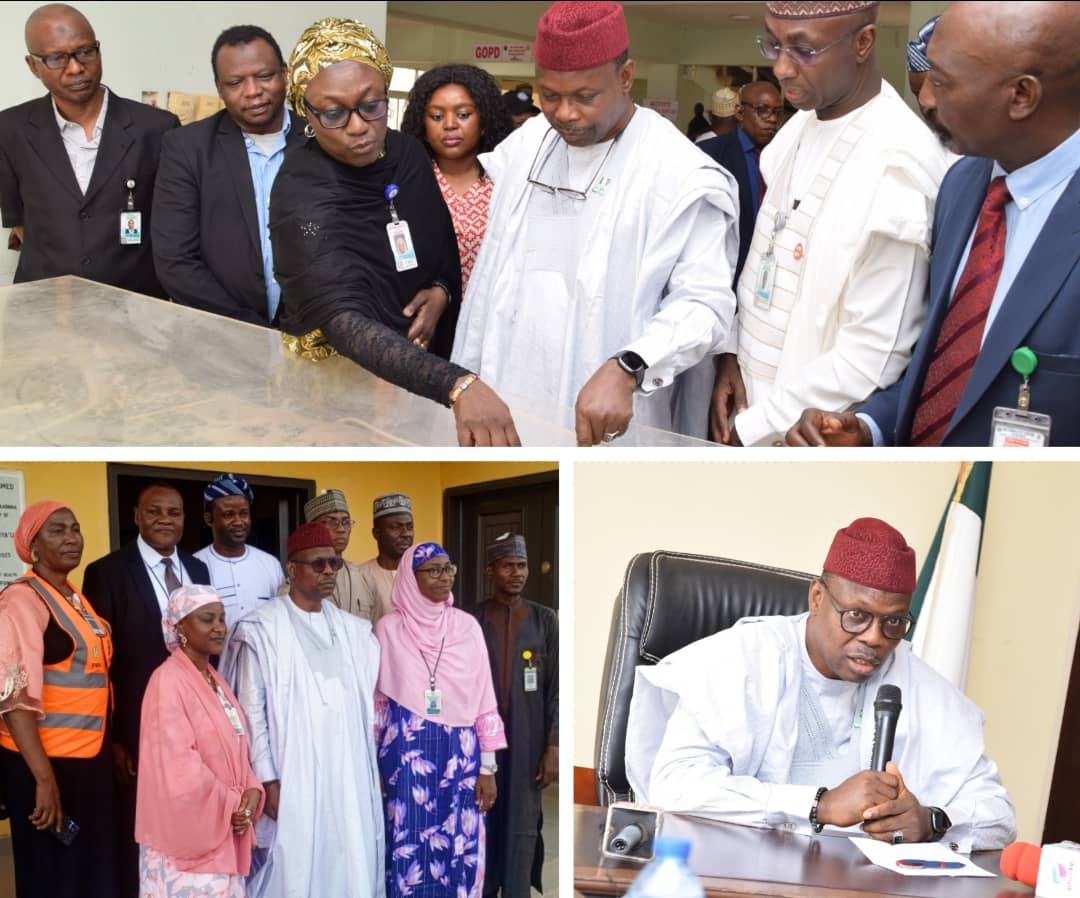
Nicholas Dekera, Kaduna
Nigeria’s Minister Health for States Dr.
Iziaq Adekunle Salako yesterday visited the country apex Eye Hospital, the National Eye Centre Kaduna, Federal Neuro-Psychiatric Hospital and National Ear Care Centre all in Kaduna for a routine supervision of equipment and others.Dr.Salako stated that President Bola Ahmed Tinubu has increased the budgetary allocation for health this year with a sole aim of eliminating medical tourism.
He said the budget targets reduce cost of controlled drugs and other medical consumables via issueing of waiver and a holistic change of mechanism in the recruitment process of Health workers to double the number of health workers presenting relocating abroad.The Health Minister maintained that ” the Federal Government Budgets for Eye Care surgery across Nigeria is hinged on what National Eye Centre Kaduna can do. It means this Hospital is strategic in the implementation of that aspect of the budget. The staff of this hospital must rededicate themselves to work and must also create VIP ( Very Important Personality) segments for all inclusive service thereby cutting off medical tourism.
While urging the Chief Medical Director Dr Amina Hassan-Wali to do a memo to the ministry for an out of court settlement with Kaduna state Government over the land dispute, the Health Minister charged the Hospital to develope and maintained a more robost community relations.
” I still feel this hospital is not doing enough because we still have a sizable number of Nigerians with preventable blindness, cataract and so many others. I want you to increase your penetration to the communities” Salako stressed.
Earlier, the Chief Medical Director of National Eye Centre Kaduna Dr. Amina Hassan-Wali in her welcome speech revealed that the hospital made far-reaching positive contributions in Eye Care in Nigeria especially in prevention of blindness stressing that the Centre aside Hospital Based Ophthalmic services, is committed to Community outreach.
” We have developed sub-specialties in Intra Ocular lens, implant microsurgery, pediatric ophthalmology, orbit/oculoplastic, retina and community ophthalmology, human resources development for Resident Training in Ophthalmology, restraining of opthalmologists from other Teaching Hospitals and Federal Medical Centers in recent ophthalmological surgical advances Ophthalmic Nursing Diploma Course, Advanced Diploma in Community Ophthalmic Nursing, instrument maintenance and Nurse Refractionist courses among others.” Dr Hassan Wali stated
Federal Neuro-Psychiatric Hospital
The Honorable Minister of State for Health Dr. I. A Salako was received at the Federal Neuro-Psychiatric Hospital by the Medical Director Dr Aishatu Armiyau at 02:10 Pm and proceeded on tour to facilities.
Dr. Salako who cited the National Mental Health Act 2021 pinpointed that the establishment of Mental Health departments in all Tertiary Hospitals, decriminalization of attempt to suicide and establishment of Health Assessment Committees in all states are sacrosanct to the well-being of Nigerians as stipulated by the act and have been prioritized by President Bola Ahmed Tinubu.
Whille assuring of more resources at the Basic Health Care, he said more funding is being budgeted for mental health at the Primary Health Care level to ensure patients satisfaction comes at a subsidized rate.
Salako who lauded the Federal Neuro-Psychiatric Hospital for its organized and digitalized medical records system cum hotel equivalent reception noted that, in diversifying, the hospital must focus on it primary mandate which is mental health, warning that resources must be deployed 99.9% for mental health.
He said that the hospital must also explore the creation of VIP segment for treatment to control stigma and cut Medical Tourism stressing that mental challenges exist even within the rich.
Salako also charged the Hospital to liase with the Kaduna State Government on Mental Health Services to ensure effective service delivery at grassroots.
National Ear Care Centre
The Health Minister challenged the Medical Director Dr. Mustapha Abubakar Yaro saying nothing much have been heard about National Ear Care despite the huge budget allocation which is almost equivalent to the Eye Centre and other National Hospitals.
” This year you must up your game, you can copy what Federal Medical Centre Ebute Meta is doing, this year we will ensure purchase of more equipments for this hospital and we will continue to support the hospital for effective service delivery. On the space you mentioned earlier, this place can not be abandoned because it is in the city centre but could still be managed for effective services. ” The Minister added
He said team work is needed for private sector investment to address power sector here because the resources spent on power as it is now can cater for private investment with a more effective result.
Salako called on the Medical Director to forward his request for recruitment waiver so that the numerous sensitive gaps created as a result of brain drain “Japa” could be filled up for better service delivery.
Over the years, National Ear Care Centre Kaduna had break throughs in cochlear implants surgery, laser head and neck surgery, middle ear surgery, voice restoration surgeries and endoscopic sinus surgery.
Health
Imo, Abia Residents Advocate Measures to Address Healthcare Challenges
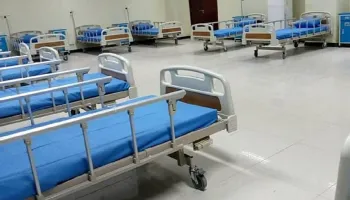
Many residents of Imo and Abia, who are worried by the dangers militating against efficient healthcare delivery in the country, have advocated stringent government measures to deal with the phenomenon.
The people spoke in separate interviews in Owerri and Umuahia.
They said that the prevalence of expired and adulterated drugs, wrong laboratory test results, obsolete equipment as well as wrong diagnoses and prescriptions by medical personnel pose serious impediment to access to efficient healthcare services.
In Owerri, the Imo capital, a pharmacist, Mr Joseph Ezeh, urged government and regulatory authorities to step up efforts to curb the activities of quacks in the sector.
Ezeh said that most cases of wrong diagnoses and prescriptions could be traced to the activities of non-professionals, mainly patent medicine dealers “who deceive gullible patients”.
He called for the adoption of appropriate measures to checkmate quackery and its attendant implications in the healthcare system.
A former Chairman of the Association of Medical Laboratory Scientists of Nigeria (AMLSN), Mr Peter Nseabasi, called for more investment in the health sector, especially in terms of equipment and staff welfare and retraining.
Nseabasi said that more investment in the sector would help to address the challenges of wrong diagnoses and their consequences.
A nursing student, Onyinyechi Ifeanyi, said that some medical professionals delegate a lot of responsibilities to student doctors and nurses, leaving patients to the mercy of trainees.
Ifeanyi called for better incentives and welfare for health personnel in order to attract more professionals to the sector.
She said it would encourage division of labour and enhance efficiency.
However, a Medical Doctor at the Federal Medical Centre, Owerri, blamed the rot in the health sector on long years of neglect by successive governments.
The doctor, who spoke on the condition of anonymity, said the rot had led to the loss of passion for the job among the doctors, nurses, and other health workers.
He said that the poor remuneration for health workers and the economic situation in the country had negatively changed the disposition of health workers toward their job.
According to him, many doctors at FMC have their own private hospitals or clinics where they consult outside their main job.
He argued that the development made some doctors to lose focus and in some cases, “in their hurry to move on to their next job, they make mistakes.
“Sometimes, patients are referred to private clinics, where they are given exorbitant bills,” the medical practitioner said.
He also said that the problem had persisted “because patients often failed to make formal complaints to the Medical and Dental Council of Nigeria about their ugly experiences in hospitals”.
A civil servant, Nwakego Ndu, narrated how she was told that she had “bilateral tumours” on both ovaries and booked for immediate surgery by her doctor.
“I was diagnosed with tumours on both my ovaries by my doctor when I went to complain of sudden severe pain on my waist.
“Although he didn’t tell me it was cancer, his sense of urgency implied that I would die if I didn’t have the surgery, immediately.
“My family insisted I get a second opinion, and it turned out I had fibroid and not tumour,” Ndu said.
She said that the experience eroded her trust in the medical profession.
“I want people to know that they have the right to question their diagnosis and seek a second opinion.
“It could make the difference between life and death,” she said.
Also, an oncology patient, Mrs Ifunanya Eze, said that when she was first presented with her symptoms, which included dark-colour urine and white stool, she was advised to do a “water therapy” for two weeks.
According to her, muscle relaxants and pain killers were also prescribed without any tests to determine the reasons for her constant pain.
“It was when I became jaundiced that my doctor reluctantly sent me for a scan after berating me for reading up my symptoms on Google.
“I was diagnosed with pancreatic cancer, and his first reaction was to book me for surgery in his clinic.
“But my current doctors told me that I would have died, if I had gone ahead with the surgery,” she said.
In Abia, the Executive Secretary, State Primary Healthcare Development Agency, Dr Kalu Kalu, said that government had taken decisive steps to prevent cases of wrong diagnoses in Primary Healthcare Centers (PHCs) in the state.
Kalu said that the measures being implemented would focus on improving medical accuracy and service delivery in PHCs.
He said the problem of wrong diagnoses could be tackled through a holistic approach, including solving manpower, equipment, and infrastructure issues.
He said that continuous training and retraining of medical personnel play a vital role in ensuring proper patient history-taking, accurate investigations, and precise diagnoses.
“There should be regular training of health workers to keep them up-to-date on best practices and enhance their skills,” Kalu said.
He further said that Abia’s 2025 budget provided for continuous training of medical staff, a practice that began last year with several capacity-building programmes for frontline health workers.
He also revealed that Abia Government had approved the recruitment of new health workers to strengthen manpower in hospitals and PHCs.
He said that government was reconstructing health centers in the 17 Local Government Areas and would be equipping them with modern medical tools to enhance service delivery.
“The government is not just focused on building health centers but also equipping them with the necessary tools to provide quality healthcare.
“We are committed to ensuring that residents of Abia have easy access to quality healthcare.
“This is in line with the vision of Gov Alex Otti to improve the state’s healthcare system,” he said.
Kalu also said that government’s comprehensive strategy would significantly reduce cases of misdiagnosis, improve patient treatment outcomes, and strengthen the overall healthcare sector in the state.
A former President of the Nigerian Association of Resident Doctors, Dr Emeka Orji, said the rising cases of wrong diagnosis could worsen without urgent intervention in healthcare training, infrastructure, and manpower.
Orji, a Consultant Orthopedic Surgeon, said that inadequate history-taking, faulty diagnostic equipment, unreliable laboratory results, and overworked medical personnel, remain major causes of misdiagnosis.
He said that the overwhelming workload faced by doctors due to the severe shortage of medical personnel in Nigeria needed to be addressed.
Orji said that Nigeria operates far below the World Health Organisation’s recommended doctor-to-patient ratio of 1:600, pointing out that the country operates at a shocking ratio of 1:10,000.
“When a doctor who is supposed to attend to 600 people is catering to 10,000, mistakes are inevitable.
“This workload, combined with inadequate training and poor working conditions, contributes significantly to wrong diagnoses,” he said.
He further criticised the Federal Government’s recent directive for medical schools to double their student intake without increasing infrastructure and faculty.
Orji said that this could lead to the churning out of poorly trained doctors by medical colleges and would consequently lead to increase in medical errors.
He also stressed the need for improved quality control in laboratories to ensure accurate test results.
He said that expired or poor-quality reagents, faulty machines, and lack of strict monitoring often lead to unreliable lab reports.
He said: “This development has forced many physicians to rely more on clinical judgment than laboratory findings.
“That is why tertiary hospitals insist on conducting tests in their own labs, since they do not fully trust external facilities.”
Orji called for urgent government action to stop brain drain in the medical sector, improved healthcare infrastructure, and enforcement of quality control in medical diagnostics.
Also, a mother of three, Mrs Obunwa Ulonna, said that she experienced wrong diagnosis when she had her first child.
Ulonna urged government at all levels to take decisive steps to ensure that medical errors are minimised to safeguard the health of patients.
A Laboratory Scientist, Mrs Ugochi Chukwuneke, said caution in a patient’s clinical examination and diagnosis could curb some cases of misdiagnosis in the nation’s health sector.
Chukwuneke, who works at the Miraculous Medical Laboratories, Umuahia, admitted that there were usually cases where some patients’ clinical test results could be misplaced by some health personnel.
According to her, when patients visit their laboratory, they ensure the patients names are written on specimen collection bottles before collecting their samples, to avert such errors.
“If you interchange their names at the reception, anything you are doing inside is nonsense because you are likely to give the patient wrong result,” she said.
Chukwuneke, who shared her experiences, said that other factors might also contribute to wrong diagnosis.
She said: “I had done a test where a man was screened as HIV positive somewhere, but I ran a similar test and discovered he was negative.
“I asked him to go to Federal Medical Centre for a confirmatory test because other ailments like tuberculosis or hypertitis might interfer to give a false positive HIV result.
“He did the confirmatory test and was happy eventually.”
Also, an Umuahia-based laboratory technician and microbiologist, Mrs Ojingwa Anya, expressed concern about the rot in the healthcare sector, saying that it has caused much havoc to society.
Anya, who was saddened by the menace of expired drugs and other negligence in the sector, urged the regulatory authorities to intensify efforts in the fight against the unwholesome practices in order to save lives.
“We in the healthcare sector need to be very careful in whatever we do to avoid sending people to untimely grave.
“Fresh medical graduates need to be tutored by the older and experienced ones; they need to be properly guided,” she said. (NAN)



